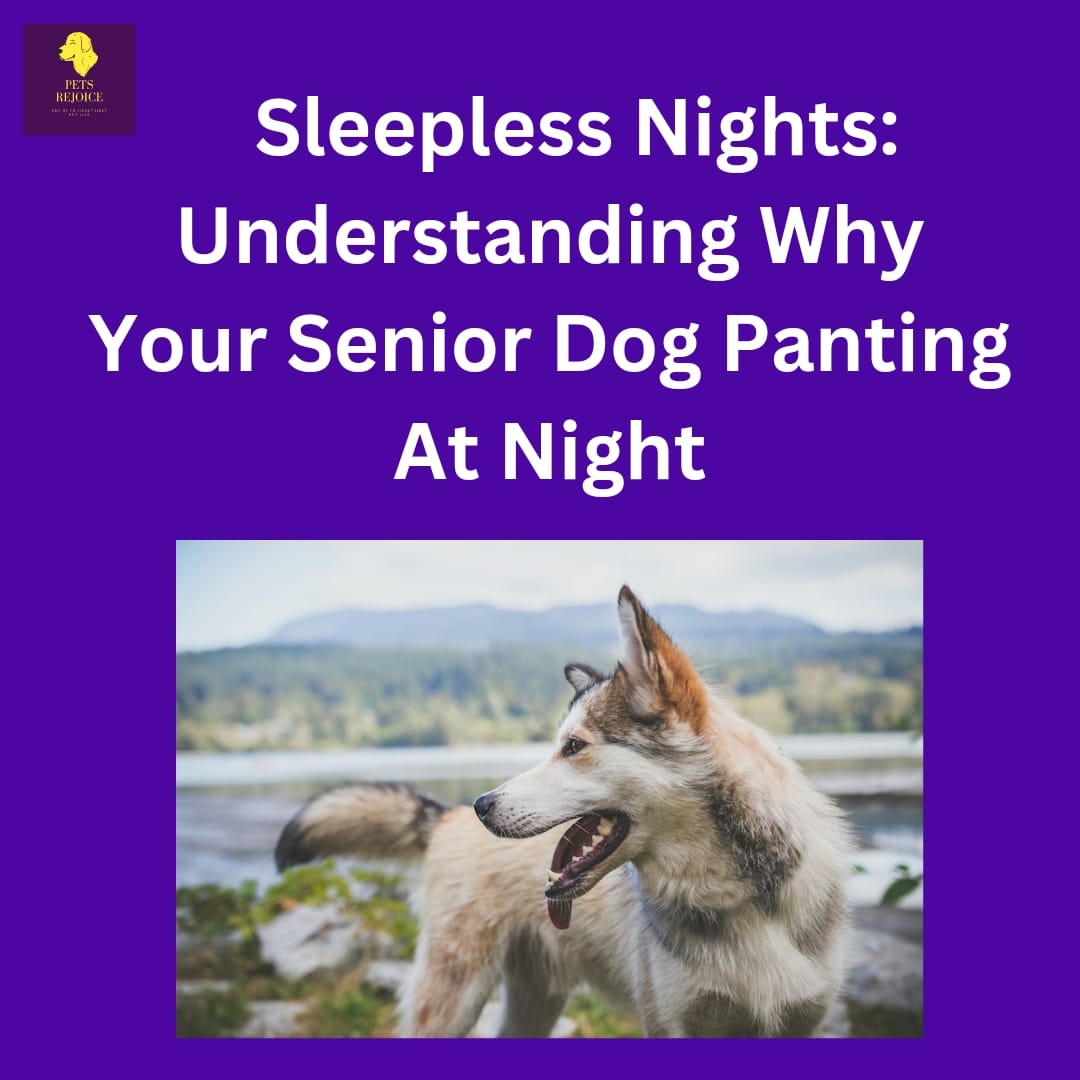As a pet parent, it’s not uncommon to wake up in the middle of the night to the sound of your furry friend panting heavily. Recently, I found myself in the same situation with my senior dog panting at night.
It was unusual behavior for her, and I started to worry. Was she in pain? Was something wrong with her health? I tried to calm her down, but nothing seemed to work.
I knew I had to get to the bottom of it. As I dug deeper into the issue, I learned that senior dog panting at night is a common occurrence and can be a sign of various health problems.
In this blog post, we will discuss the reasons behind senior dog panting at night, how to tell if it’s a serious issue, and what steps you can take to help your furry companion get a good night’s rest. So, if you’re worried about your senior dog panting at night, keep reading to learn more.
Do You Know Why Senior Dogs Pant?
Well, do you know dogs do not sweat? Like a human being does.
Dogs pant to regulate their body temperature. Unlike humans, dogs cannot sweat through their skin except for some sweat glands located on their paws. Instead, dogs depend on panting to cool down when they are overheated or when their body temperature rises due to physical activity or stress.
When a dog pants, they inhale air through its nose and exhale through its mouth, which helps to evaporate moisture from its tongue, mouth, and respiratory tract. This evaporation process cools down their body and helps to release heat from their body.
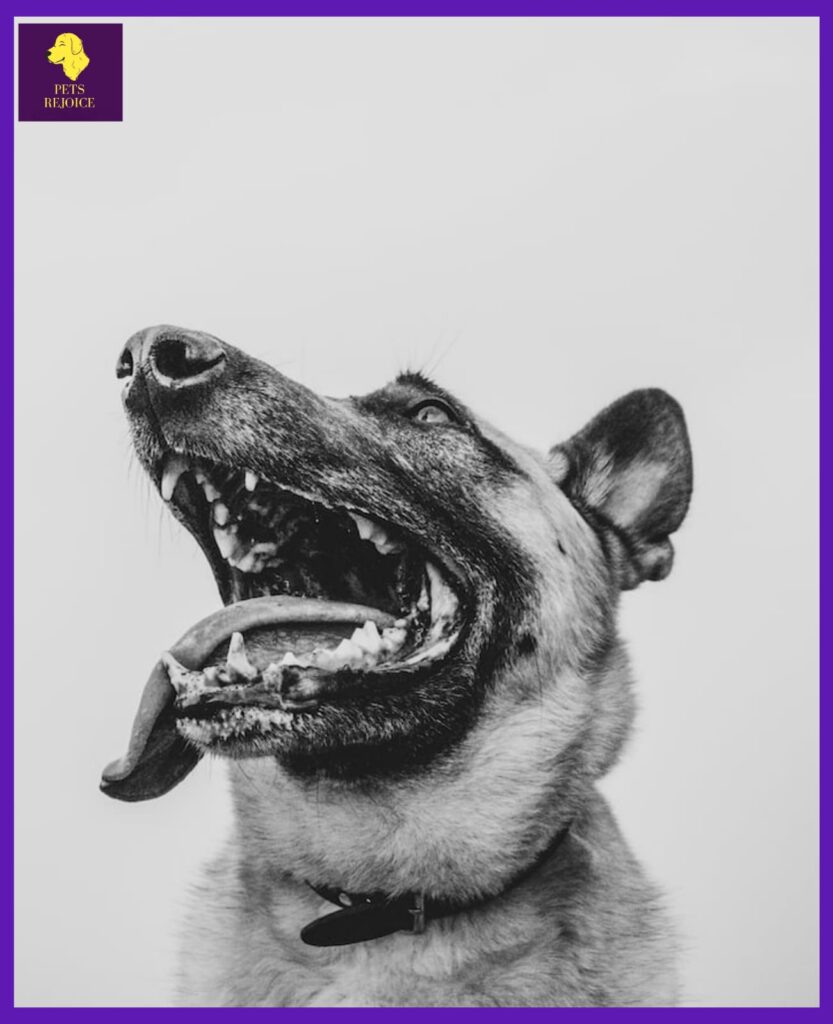
What Are The Signs For Senior Dog Panting At Night?
Nevertheless, Dogs pant at night for various reasons, but excessive or abnormal panting can be a symptom of a health problem. For this, senior pets require more careful attention. Here are five alarming signs why dogs pant at night:
1. Difficulty Breathing:
If your dog is panting heavily and seems to be struggling to breathe, it can be due to respiratory issues such as Asthma or Bronchitis. Regular exercise can help strengthen a senior dog’s respiratory muscles, making it easier for them to breathe.
The signs of difficulty breathing may include coughing, wheezing, or a blue tint on the gums.
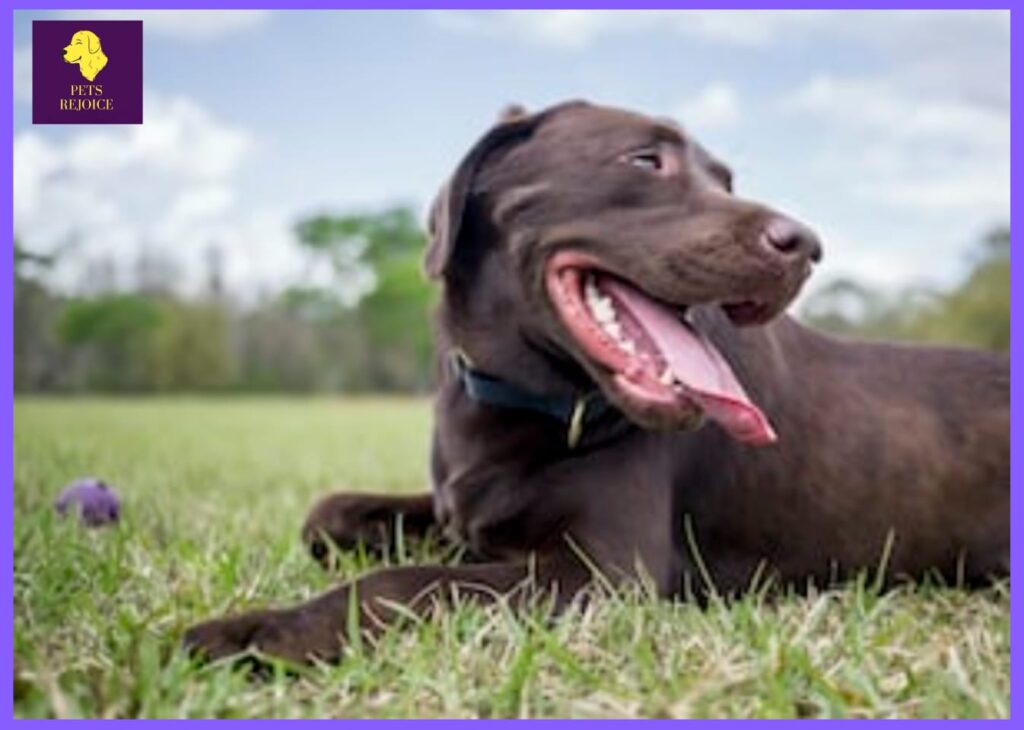
2. Pain and Discomfort:
Senior dog panting at night and restlessness are because they are experiencing pain or discomfort, especially if they have arthritis or dental issues.
If you want to know more about arthritis issues in dogs, click here.
For dental problems in dogs, this guide might be helpful.
Moreover, pain or discomfort may include limping, reluctance to move or play, or a decreased appetite.
3. Heart Disease:
Senior dog panting at night and restlessness are signs of heart disease or heart failure in dogs. Moreover, some medications can cause Senior dog panting at night and restlessness as side effects, especially if your dog is on a new Medication.
4. Anxiety or Stress:
Dogs may pant excessively at night if they are anxious or stressed, especially if they have separation anxiety or fear of loud noises such as thunderstorms or fireworks. However, anxiety or stress may include pacing, excessive licking or chewing, the senior dog panting at night and restlessness.
How can you relieve the anxiety and stress of your senior dog— going through this guide will be helpful.
5. Heatstroke:
In hot weather, dogs may pant at night to regulate their body temperature. However, if your dog is panting heavily and seems to overheat, this can be a sign of heatstroke, which is a life-threatening condition.
You may keep your senior dog in a chilled environment during hot weather. Check if it has access to shade, air conditioning, or fans. Other signs of heat stroke may include vomiting, diarrhea, and lethargy.
How To Calm A Panting Dog?
If your dog is panting due to heat or physical activity, the best way to calm them is to help them cool down. Here are some tips to help calm a panting dog:
1. Provide water:
Senior dogs need plenty of water to stay hydrated, and it’s essential to ensure that they have access to clean, fresh water at all times. Their water bowl can be kept cooler by having ice cubes in it. Water will help them stay hydrated and cool down.
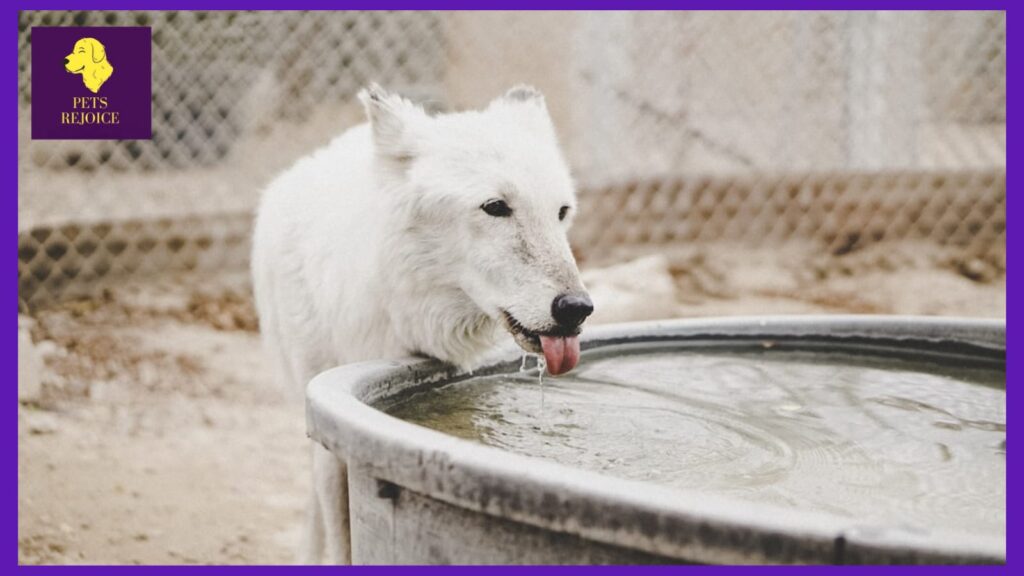
2. Use a cool, damp cloth:
You can place a cool, damp cloth on your dog’s head, neck, and paw pads to help cool them down. You can also use a cooling mat or bed to help regulate your body temperature.
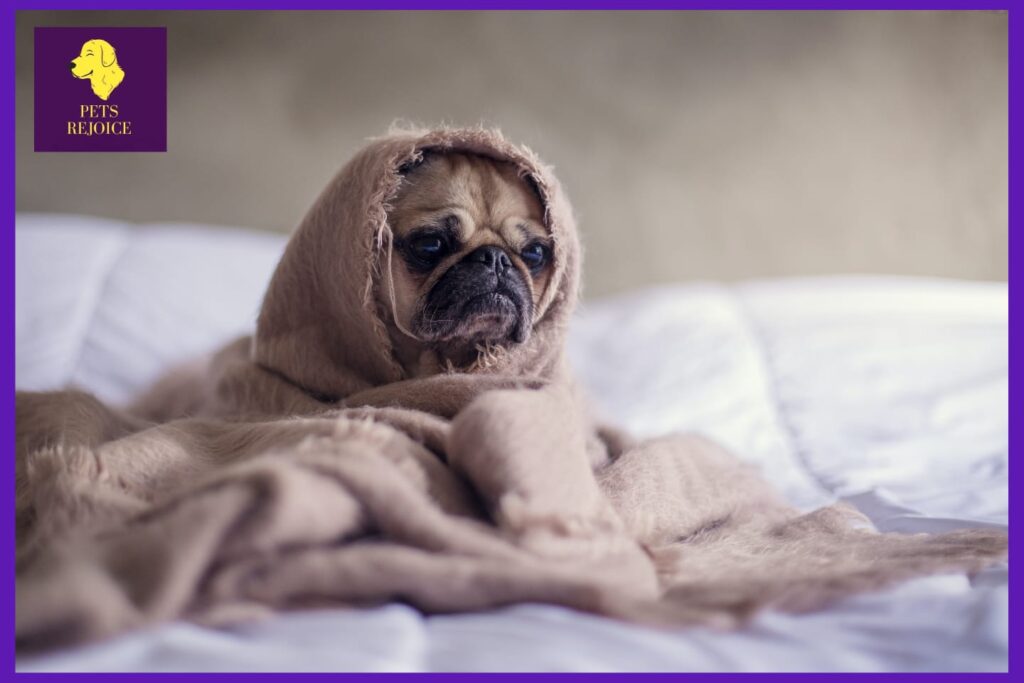
3. Avoid stressful situations:
If your dog is panting due to anxiety or stress, try to remove them from such an environment. Provide a calm and quiet space for them to relax.
4. Use calming techniques:
You can use calming techniques such as massage, aromatherapy, or music therapy to help your dog relax and reduce panting.
5. Seek veterinary attention:
If your dog’s panting is excessive or persistent, or if they show other symptoms such as lethargy, vomiting, or diarrhea, it’s necessary to seek veterinary attention to rule out any underlying health issues.
What Are The Reasons Your Senior Dog Panting And Drinking Lots Of Water?
Your senior dog panting at night and drinking lots of water could be because of underlying health issues, including several diseases. Here are a few examples of those diseases that cause senior dog panting at night and drinking lots of water:
i) Kidney disease:
Senior dog panting at night and drinking lots of water are common symptoms of kidney disease in dogs. As the kidneys become less efficient at removing waste and extra fluid from the body, the dog may drink more water and pant to regulate their body temperature.
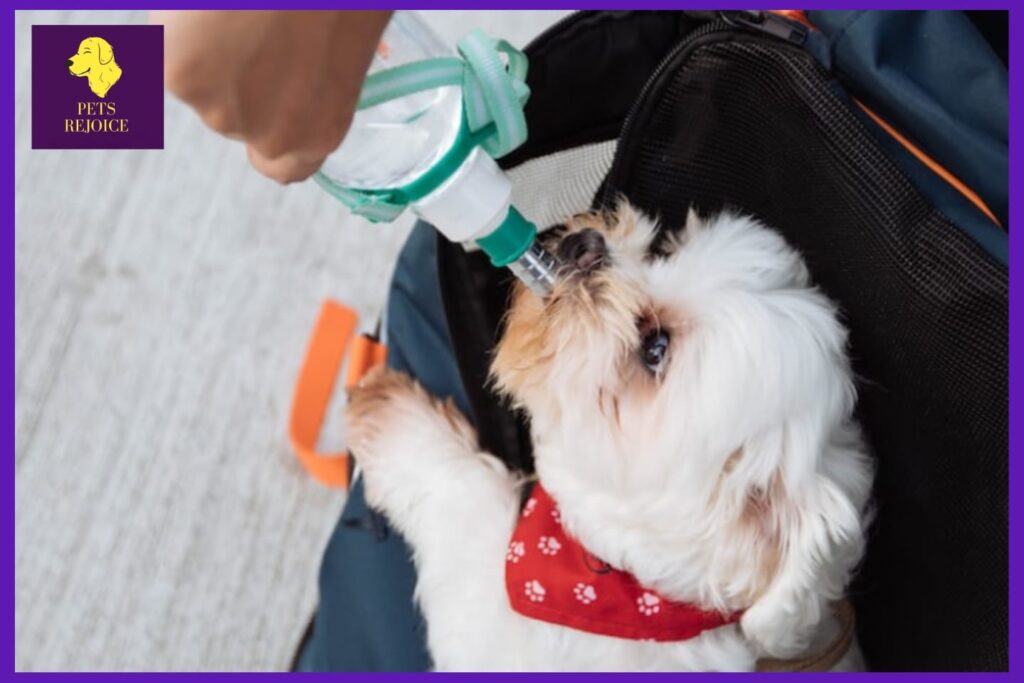
ii) Diabetes:
However, diabetes is another reason for your Senior dog panting at night and drinking lots of water due to high blood sugar levels, which can cause dehydration and an increased need for water.
iii) Cushing's disease:
Cushing’s disease is a circumstance where the body produces too much cortisol. Cortisol is a hormone that can lead to increased thirst and panting in dogs. Cushing’s disease is also one of the signs of your senior dog panting at night and drinking lots of water.
Nevertheless, there are some senior dog panting at night liver issues; they cause due to a few potential causes:
1- Liver Disease- a Serious Cause of Dog Panting at Night:
Senior dogs may develop liver disease due to age-related changes, infections, toxins, or other underlying conditions.
One of the symptoms of liver disease in dogs is panting, particularly at night.
This panting can be due to a buildup of toxins in the bloodstream as the liver struggles to filter out waste products effectively.
Other symptoms of liver disease in senior dogs may include loss of appetite, weight loss, vomiting, diarrhea, and jaundice.
Treatment of Liver Disease:
For liver disease, treatment options may include medications, dietary changes, and lifestyle modifications. While in severe cases, hospitalization and supportive care may be necessary to manage the symptoms of liver disease and improve the dog’s quality of life.
2- Hepatic Encephalopathy:
Hepatic encephalopathy is a senior dog panting at night liver condition. It happens when the liver is unable to remove toxins from the blood leading to a buildup of toxins in the brain. This can cause a variety of neurological symptoms in dogs, including panting.
Other symptoms of hepatic encephalopathy in dogs may include disorientation, lethargy, vomiting, diarrhea, seizures, and behavioral changes.
Hepatic encephalopathy can be caused by a variety of liver diseases, including liver failure, hepatitis, and cirrhosis.
Treatment of Hepatic Encephalopathy:
Treatment of hepatic encephalopathy in dogs typically involves addressing the underlying liver disease, managing symptoms, and providing supportive care. This may include medications to reduce ammonia levels in the blood, dietary changes, and in severe cases, hospitalization and intravenous fluids.
If your senior dog is displaying symptoms of hepatic encephalopathy such as panting at night due to liver condition, it is important to seek veterinary care promptly. Early diagnosis and treatment can help improve your dog’s prognosis and quality of life.
Final Note:
If you have a senior dog who’s been panting at night, I understand how worrying and frustrating it can be. It’s important to take action and seek veterinary care, as panting can be a sign of an underlying health issue that needs attention. As pet owners, we want to make sure our furry friends are comfortable and happy in their golden years. By staying proactive with their healthcare needs, we can help them live their best lives and enjoy all the love and joy they bring to us.
MORE FROM THE EXPERTS:
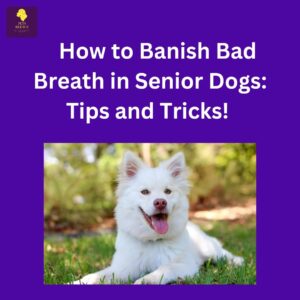 How to Banish Senior Dog Bad Breath: Tips and Tricks
How to Banish Senior Dog Bad Breath: Tips and Tricks  Best Senior Dog Food without Chicken- For Dogs Having Chicken Intolerance
Best Senior Dog Food without Chicken- For Dogs Having Chicken Intolerance 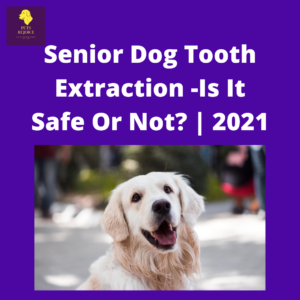 Senior Dog Tooth Extraction -Is It Safe Or Not? | 2022
Senior Dog Tooth Extraction -Is It Safe Or Not? | 2022  When To Switch To Senior Dog Food
When To Switch To Senior Dog Food 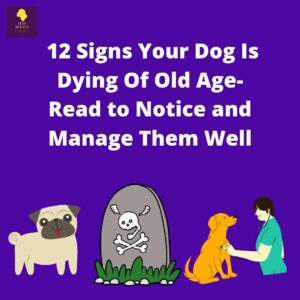 12 Signs Your Dog Is Dying Of Old Age- Read to Notice and Manage Them Well
12 Signs Your Dog Is Dying Of Old Age- Read to Notice and Manage Them Well 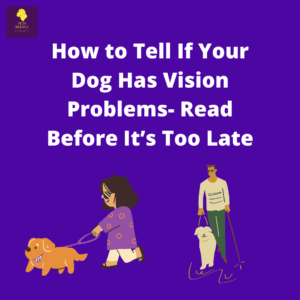 How to Tell If Your Dog Has Vision Problems- Read Before It’s Too Late | 2022
How to Tell If Your Dog Has Vision Problems- Read Before It’s Too Late | 2022 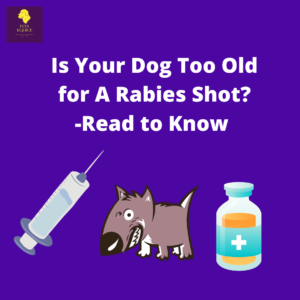 Is Your Dog Too Old for A Rabies Shot?-Read to Know
Is Your Dog Too Old for A Rabies Shot?-Read to Know